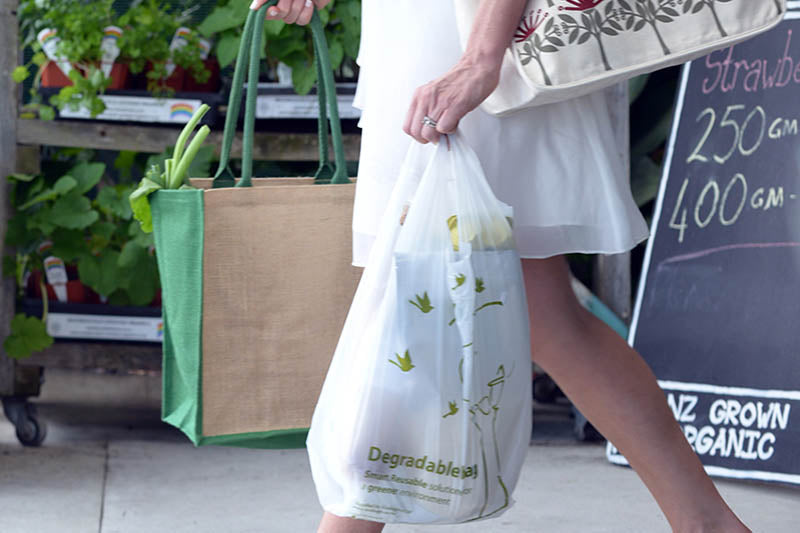
No to greenwashing
Don’t fall victim to greenwashing
Your quick guide to the eco-friendly spectrum.
In the wake of the single-use plastic bag ban, which hit stores in July this year, New Zealanders are on a hunt for more sustainable packaging options. We’re lucky to have some excellent sustainable alternatives at the ready (we know, because we sell them!). But, it’s a case of ‘buyer beware’ because not all bags are created equal.
While single use plastic bags were undoubtedly a cheap and convenient solution, the huge amount of unnecessary plastic waste pouring into our landfills and oceans was untenable. Drastic change was needed and the government rose to the occasion. But it has left retailers and shoppers looking for “green” alternatives – and there’s a whole spectrum of green out there! Unfortunately, some suppliers are happy to jump on the bandwagon and take advantage of our need for more eco-friendly products.
With this change has come a minefield of new “planet friendly”, “pure”, “natural”, “eco” and even “biodegradable” claims. And it’s not always justified. So, here’s the low down to help you understand how ‘good’ your bag is…
Is it really biodegradable? Or just “degradable”?
One of the most misused terms is “biodegradable”, when often “degradable” would be more appropriate. Degradable bags have the ability to do as the name suggests, degrade, and they’re strong and cost effective – just like traditional checkout bags.
Our degradable bags have an additive called TDPA, which helps the bags break down into small particles in sunlight and oxygen in approximately 2 - 4 years (depending on the environment).
We sell degradable products as an alternative to plastic but we never claim they are “biodegradable”. This is an area of contention and our views are not shared by all bag manufacturers and suppliers. We believe they should be called degradable, and not biodegradable, because although the plastic is broken down into very small particles it does not get ingested into the environment by bacteria (yet some packaging companies are happy to claim this does happen without sufficient proof!).
Then are “biodegradable” and “compostable” the same thing?
When a bag is labelled as compostable it means that by default the bag is biodegradable and non-toxic to the environment. Our 100% compostable bags are with plant-based resins (as well as PLA and PBAT) that break down to carbon dioxide and water, in as little as 90 days. Compared to the hundreds of years it can take a regular plastic bag to disintegrate, that’s pretty quick!
Our Ecopack compostable bags are home and commercially compostable. They come in all shapes and sizes – from bin liners to courier packs, retail bags, and ziplock bags to doggy poop bags.
How long your bags take to decompose will depend on the compost environment and can range from 90 – 180 days. Commercial composting is much quicker, thanks largely to the higher temperatures achieved in industrial environments, than your home compost pile. It’s important to remember that when shopping for biodegradable bags to check the label.
Our compostable bags contain natural corn starch, PLA and PBAT and list the certifications that they hold.
Also remember that they are made to break down, so avoid leaving them in your bin too long, use within 9 months of manufacture, and don’t put too much moisture in them. EcoBags NZ is positively against greenwashing. While some may label their products out of convenience, we’re committed to telling it as it is. We label our products correctly, and have certifications to prove it, so you can shop with eco-conscious confidence.

